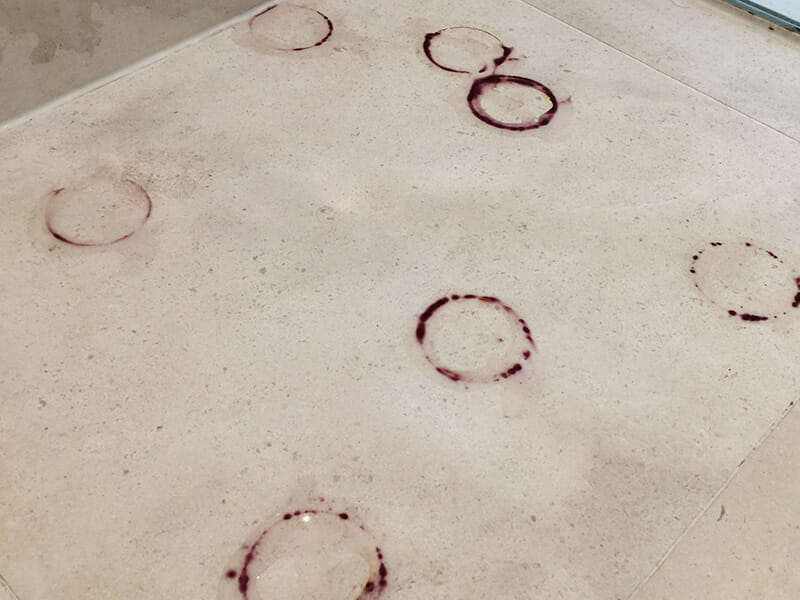
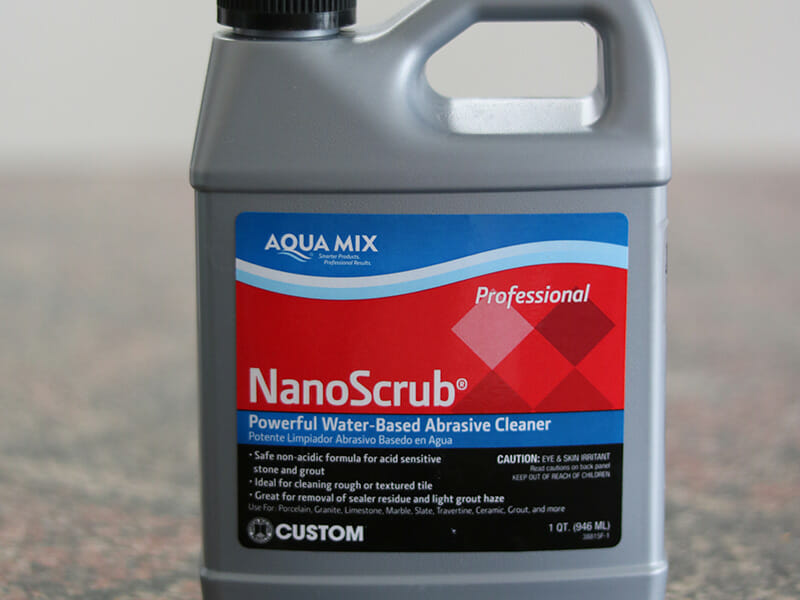
How do I clean red wine ring marks off my stone?
Red wine spills on natural, porous stone floors and benchtops, made from travertine, marble and limestone, can cause staining and etching. Stone that is sealed with a penetrating sealer will have a better chance of not staining than unsealed stone but it will still etch if not removed immediately.
These are the steps YOU can take to limit the damage:
- Immediately soak up the red wine or other liquid with a towel.
- Flush the area with cold water and soak up with a clean towel.
- Use a recommended cleaner such as Stain Proof Daily Cleaner and follow the instructions to thoroughly clean the area.
- Soak up all remaining liquid and allow the floor or benchtop to dry before assessing damage.
- If any stains remain use a product such as Nano Scrub and a Scrub a Dub white scourer for a deeper clean.
If you are unsuccessful at removing a stain contact us with your photos so we can assess the damage. We may be able to apply a special poultice to draw out the stain. If the red wine has etched the travertine, marble or limestone tiles they may need to be professionally polished to restore the surface.stone care handy hints
EMAIL OR CALL US NOW! 1300 627 626

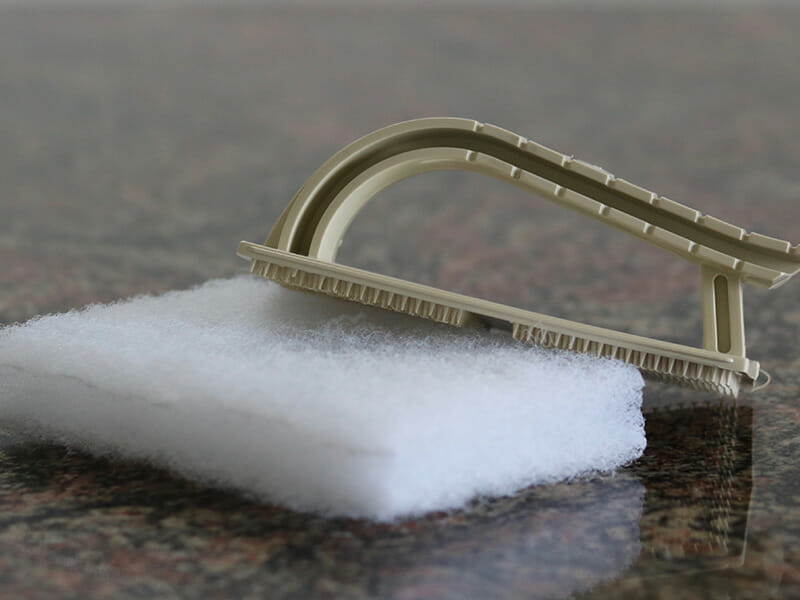
Can I use a scouring pad on my stained marble vanity?
Most scouring pads especially the green type will scratch the surface of natural stone and damage the glossy finish. If scouring is necessary to remove stubborn stains, use only professionally recommended products such as the Scrub A Dub white scourer and a recommended stone product such as Nano Scrub. Follow the directions on the products to achieve the best results.
To prevent staining your marble vanity, place a soft cloth under products such as perfume, oils and make up. You could also place items in a container to prevent contact with the stone. These products can also contain acidic substances, so these preventative measure will also stop etching. If your stone is etched it will require resurfacing to restore the smooth, glossy appearance.
Another option to prevent staining and etching is to have your marble vanity sealed with TuffSkin protective film. This sealing product will not allow any substances to penetrate the surface. It is professionally applied after cleaning or repolishing and can be removed when desired.
For more information visit our TuffSkin sealing page and the TuffSkin Gallery. stone care handy hints
EMAIL OR CALL US NOW! 1300 627 626
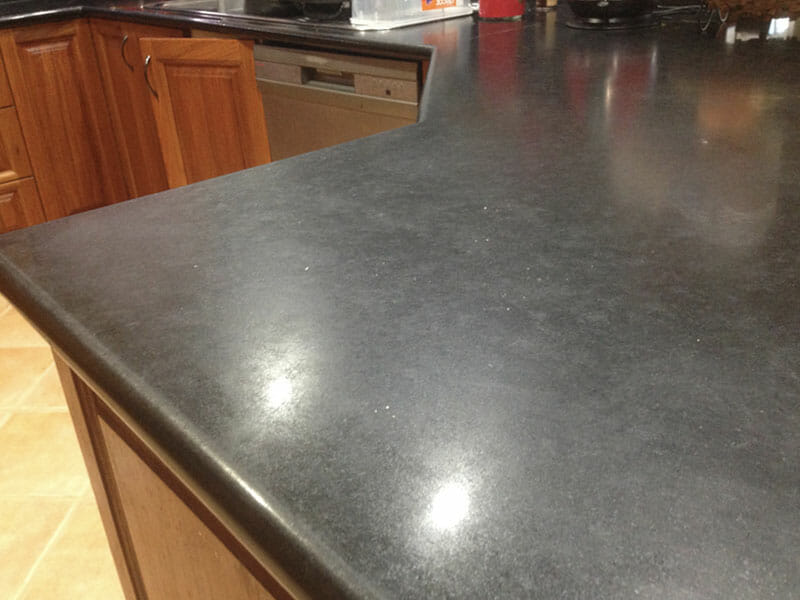
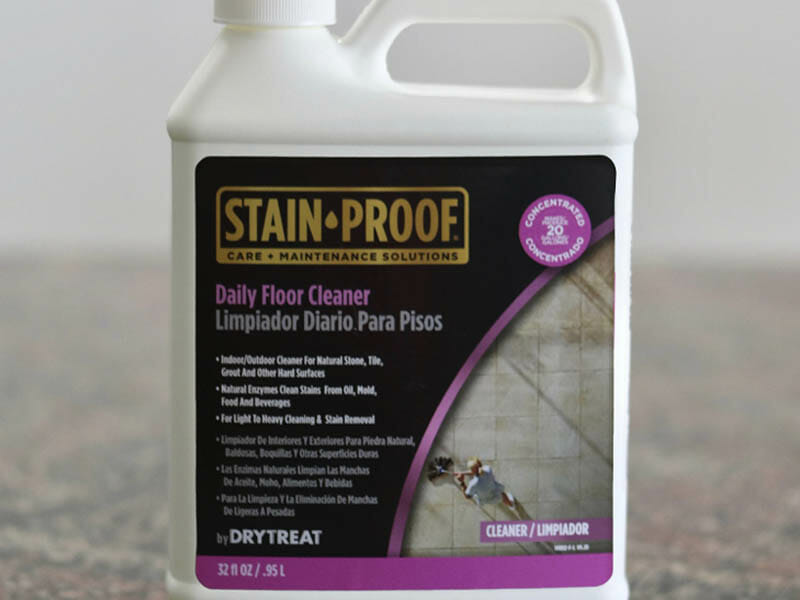
Can I use vinegar to clean my granite benchtops?
People commonly ask if they can use vinegar to clean their granite and engineered stone benchtops. Whilst it can leave the stone looking clean and streak free, it can damage the stone over time. We would recommend against using vinegar on any stone surface.
It is particularly important NOT to use vinegar on any natural marble, limestone, travertine or onyx surfaces as it WILL cause etching.
Whilst granite and Caesarstone won’t etch like the softer natural stones, acidic cleaners such as vinegar or those containing citrus such as orange, lemon or lime, will also eventually dull the stone. Products such as windex will have the same effect.
Repeated use of products that are not PH balanced and not designed specifically for cleaning stone will cause damage. To protect and prolong the life of your stone, use only recommended stone care products such as Stain Proof Daily Cleaner.
You can purchase your stone care products by calling The Marble Man or completing our Stone Cleaning Product Order Form. stone care handy hints
EMAIL OR CALL US NOW! 1300 627 626
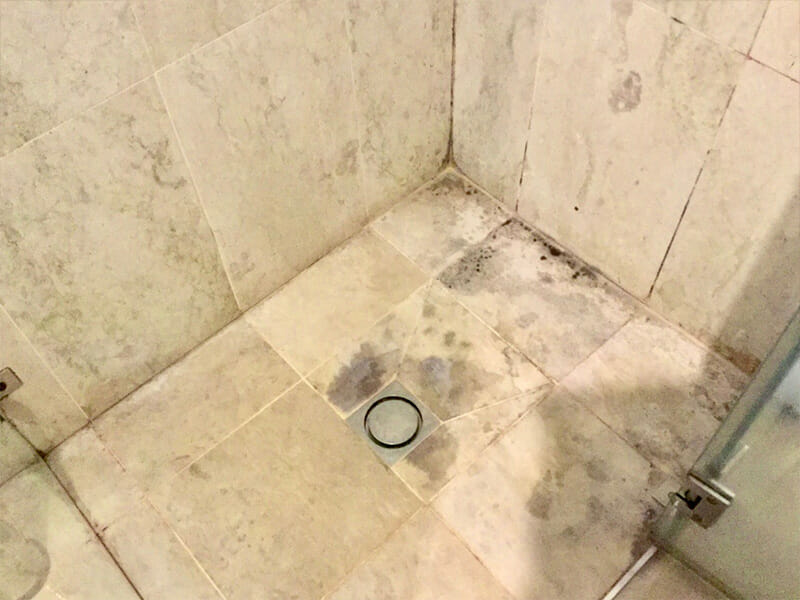
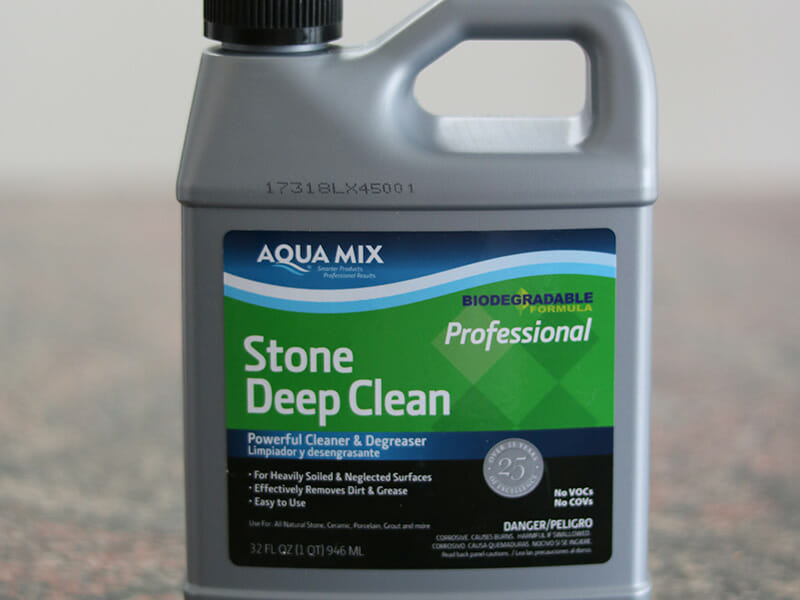
Which cleaning products should I use on my stone shower?
Marble and stone showers need specialised PH balanced stone products that will clean the grout, silicone and tiles, and will not dull the stone over time.
Tips for cleaning your stone shower:
Do NOT use abrasive cleaners such as Jif, Ajax or creme cleansers.
Use only a PH balanced and non-acidic product specifically for stone.
Do NOT use ‘natural’ cleaners that contain acidic substances such as orange, lemon, lime etc as these will etch marble, limestone and travertine.
We recommend the following marble and stone shower cleaning products:
- Stone Deep Clean for regular cleaning, in ground dirt, deep cleaning and anti-bacterial treatment
- Scrub A Dub white scourer as it does not scratch natural or engineered stone
Product descriptions and instructions are available on the Stone Cleaning Products page. You can also order by completing the Stone Cleaning Product Order Form or calling The Marble Man
EMAIL OR CALL US NOW! 1300 627 626
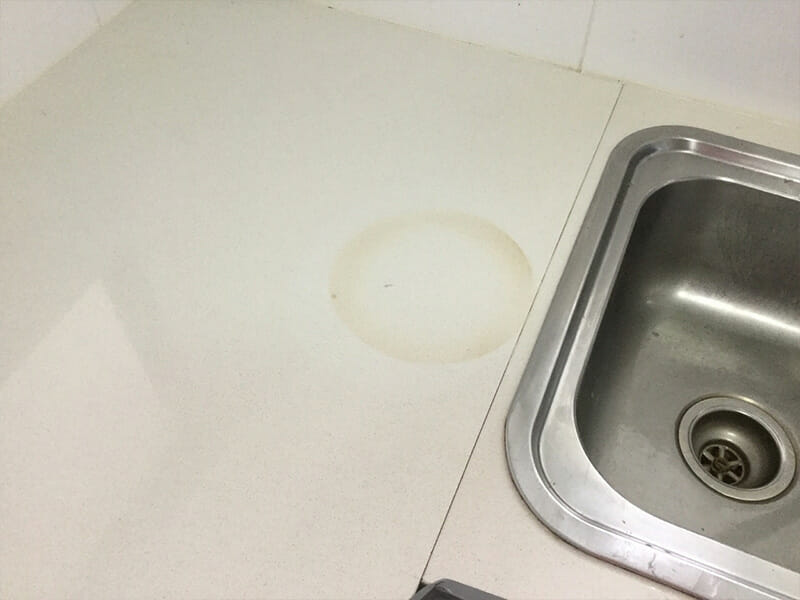

How can I protect my Caesarstone benchtop from damage?
Engineered stone such as Caesarstone, Essastone, Quantum Quartz, Silestone, Smartstone and HanStone are a stylish alternative to natural stone. They are made up of hard natural quartz and resin so they still need to be cared for in the same way as natural stone.
These are steps YOU can take to protect your stone:
Always use a heat resistant pad or similar under hot pots.
Do not place hot pots directly onto the surface of the stone for extended periods as the surface will burn.
Do not leave batteries on the surface as these will burn if the acid leaks.
Always use a cutting board and do not cut directly on the surface of the stone.
Do not drag items such as plates or serving dishes over the surface repeatedly as these will scratch.
Never stand on any stone benchtop, especially around the sink cut out, as this area is a weak point and could crack.
In our experience engineered stone kitchen benchtops and bathroom vanities do chip, crack, scratch and scorch. We have however developed processes to repair even large chips making them virtually undetectable. We have also developed polishing processes to restore the factory finish to the stone.
One of our newest poultice processes can remove the yellowing that occurs on engineered stone. For more information on removing years of discolouration call our team or email your questions and photos via our contact form.
EMAIL OR CALL US NOW! 1300 627 626
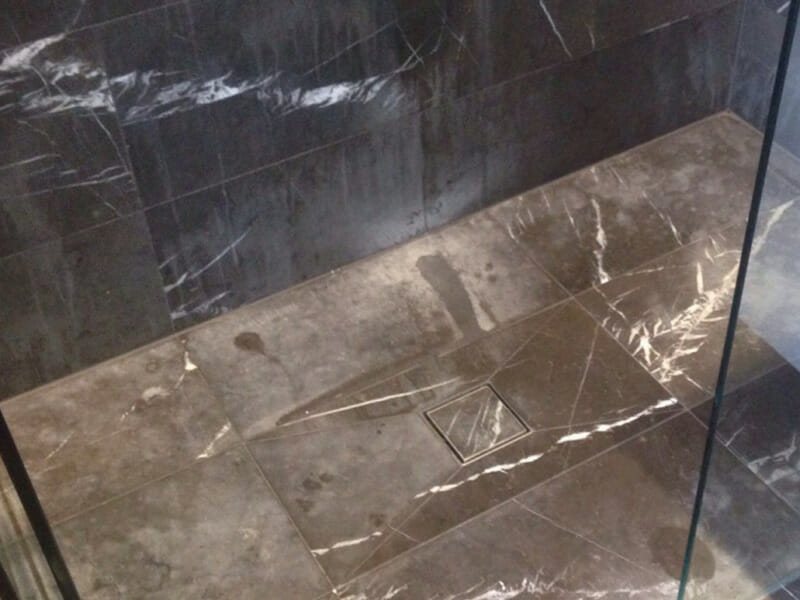

How do I clean soap scum off my stone shower tiles?
Stone showers can be difficult to clean if not maintained regularly. Soap scum can build up on walls and floors and mould can grow on silicone. With regular cleaning you can keep your stone shower tiles looking sparkling and hygienic.
- Remove soap scum by using a recommended product such as Stone Deep Clean. This is a professional cleaning product, gentle on stone but effective enough to cut through soap scum build up and kill bacteria.
- Use only a white scourer such as a Scrub A Dub to clean stone shower tiles and glass.
- NEVER use green scourers or steel wool to remove stains on any stone surface or on glass, as these will scratch.
- Do not use acidic or abrasive supermarket products such as Ajax, Jif, Exit Mould, Domestos, Shower Power etc as these will dull the surface of the stone over time and etch, especially marble and limestone.
- Remove mould on silicone immediately to prevent overgrowth. The longer the mould is attached to the silicone, the harder it is to remove.
- Do not allow products that contain bleach to accumulate on the floor.
- IMPORTANT: DO NOT mix bleach with ammonia based products, as it will cause a toxic chemical reaction.
- Rinse the entire shower with fresh water after cleaning to remove excess product.
- Dry the area after cleaning, with a towel or squeegee, to prevent the growth of mould.
- Ensure adequate ventilation when using any cleaning products in a confined space such as a shower.
- Professional sealing is recommended after installation of a new shower, or after repolishing, to protect the tiles from moisture accumulating behind the tiles.
If you cannot successfully remove the soap scum, send your photos to our team for assessment via our contact form.
EMAIL OR CALL US NOW! 1300 627 626
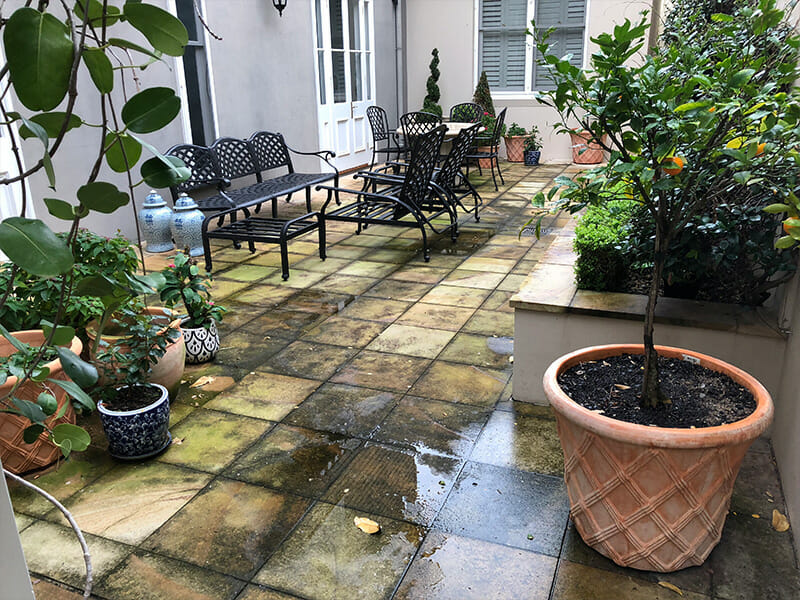
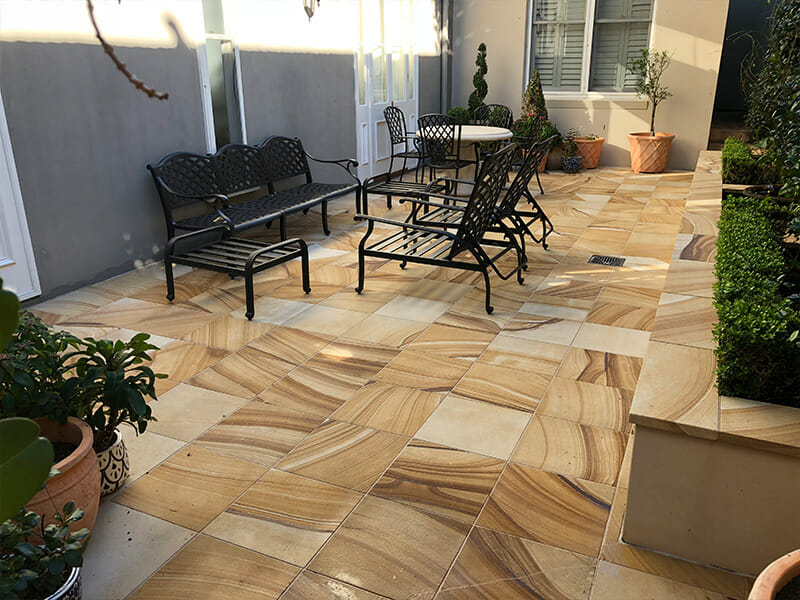
How should I maintain my outdoor stone tiles?
Stone tiles in outdoor areas can become dirty and stained from dirt, leaves, pool chemicals and pollution. It is important to clean these areas regularly so that the stone tiles do not develop permanent stains and damage.
Tips for protecting your outdoor stone tiles:
- Sweep the outdoor area at least once per week with a medium bristled brush to prevent dirt from sticking to the surface and settling in the grout.
- Vacuum textured outdoor stones to lift dirt from the grooves and in the grout, that sweeping can not shift.
- Hose outdoor stone tiles monthly or more often using clean water and a mild, neutral stone detergent such as Stone Deep Clean.
- Remove stubborn organic growth such as algae, moss or lichen as soon as possible as it can permanently stain outdoor stone tiles, especially sandstone which holds moisture.
- Clean under pots regularly to avoid permanent ring marks developing.
- Wash away beverage spills immediately to avoid staining, as some outdoor stones such as sandstone are extremely porous.
- Use a white Scrub A Dub pad with water and Stone Deep Clean to remove stubborn stains.
- NEVER use green scourers or steel wool to remove stains on any stone surface.
- Do not use a wire brush on sandstone to remove moss or algae as this will damage the stone.
- Carry out a heavy duty clean at least once yearly. Outdoor stone tiles can become difficult to restore if left too long without regular maintenance.
- If mould and stains do not disappear after using Stone Deep Clean send us your photos via our contact form.
EMAIL OR CALL US NOW! 1300 627 626

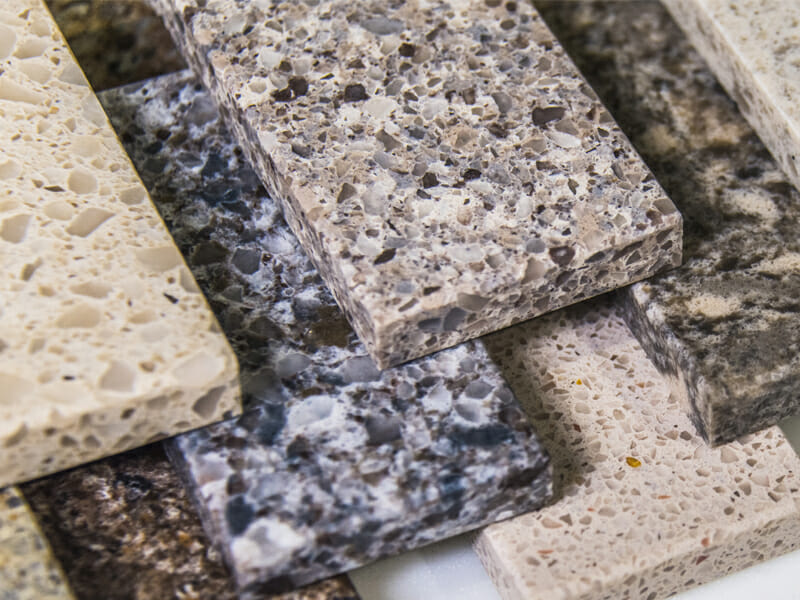
What should I consider when choosing stone?
There are many considerations when choosing stone for your home, boat or commercial premises. It is important to make the right choice so that the stone suits its environment and purpose.
Consider the following when choosing your stone:
- Location
- Structure
- Colour
- Texture
- Quality and Quantity
- Finish
- Maintenance
It is important to know the limitations of the stone you are choosing, including where it will be placed and what elements or substances it will be exposed to.
If you can’t find the natural stone finish you are looking for, you may wish to consider an engineered stone product such as Caesarstone, Essastone, Quantum Quartz, Silestone, Smartstone and HanStone.
Functionality is important. You need to ensure that the stone will be suitable for its purpose and that it will not require replacing or repairing too soon..
Aesthetics also play a part. The stone needs to suit your decor and complement its surroundings. Type of stone, colour, texture and finish can dramatically change the look and feel of a room.
For a more detailed description of the above considerations, visit our web page, Tips For Choosing Your Stone.
If you need more information before you purchase your stone, on how a particular stone should be maintained. call our team or email your photos and questions via our contact form. This knowledge may impact your choice. stone care handy hints
EMAIL OR CALL US NOW! 1300 627 626
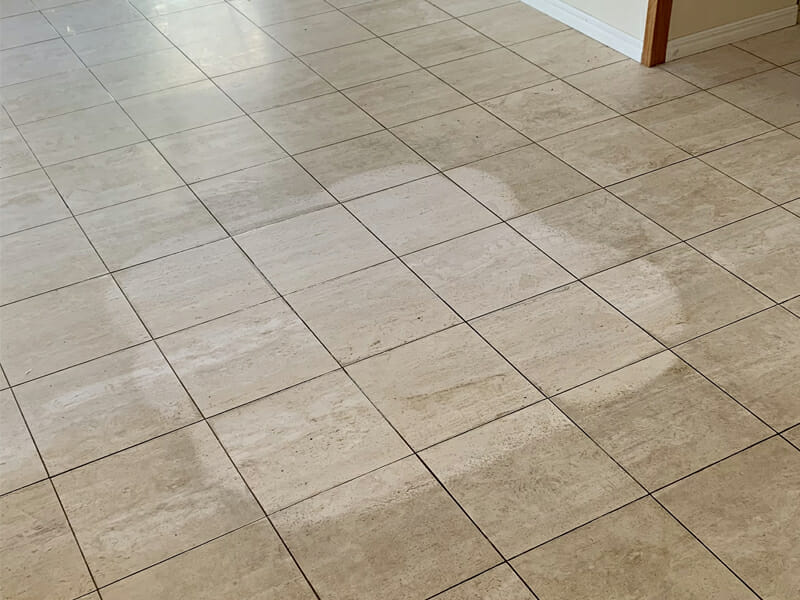

How can I keep my travertine floors clean and protected?
Regular maintenance with PH balanced cleaning products recommended for use on stone, will extend the need for professional stone tile resurfacing.
These are the steps YOU can take to ensure that your stone floor tiles stay clean and undamaged for longer:
- Sweep floors on a daily basis with a soft bristled or microfibre broom to prevent dirt from scratching the surface under foot and accumulating in the grout.
- Vacuum rough textured surfaces, as this is more effective than sweeping. The suction will pull the dirt from within the textured surface.
- Mop on a regular basis after sweeping or vacuuming, with warm water and a recommended product such as Stain Proof Daily Cleaner.
- Change mopping water every second squeeze so that dirt and grit is not continually transferred back to the stone floor.
- Wipe the floor dry with a cloth or towel to remove any product residue, water and streaks.
- NEVER use green scourers or steel wool to remove stains on any stone surface as these will scratch.
EMAIL OR CALL US NOW! 1300 627 626


Can my chipped Caesarstone benchtop be repaired?
Chips in marble, granite and engineered stone benchtops such as Caesarstone are common. Damage is often caused by an accidental impact from a saucepan or a plate, and if not fixed can cause more serious problems.
If not repaired, moisture can penetrate the stone causing it to discolour and stain. Chips and cracks can be sharp and dangerous and can compromise the strength of the stone.
What to do if you chip your marble or engineered stone benchtop:
Keep the stone piece that has been chipped of the benchtop as this will assist in a better repair.
Try to keep moisture away from the damaged area as the exposed stone will not be sealed.
The chip will need to be professionally repaired so photos will be required.
Place a 10 cent piece next to the chip. Take a close up photo and one of the whole benchtop.
Email the photos to The Marble Man via the contact form. Assessment of this type of repair can usually be carried out without a site visit.stone care handy hints
EMAIL OR CALL US NOW! 1300 627 626


How do I prevent a spill from staining my stone floor?
The first line of defence to prevent staining is to have your stone floors professionally sealed. A penetrating sealer will prevent most stains from soaking into the stone. Ideally liquids such as water will bead on the surface. Sealing is best done after the stone is installed or freshly cleaned or polished.
There are many steps YOU can take to prevent your stone floor from staining:
Remove the spilled substance immediately. Soak up with a towel or other absorbent cloth and do not let the spilled liquid dry. The longer it is on the porous stone the more chance it has of staining.
Dilute the residue using soapy water or Stain Proof Daily Cleaner. This will help break down oils and disperse coloured substances.
Rinse the area well with clean water and dry with a towel.
Avoid using chemicals and hot water on albumin based stains (containing protein) such as blood or milk, as this may set the stain.
If a stain remains take photos and send to The Marble Man via our contact form for assessment.one care handy hints
EMAIL OR CALL US NOW! 1300 627 626
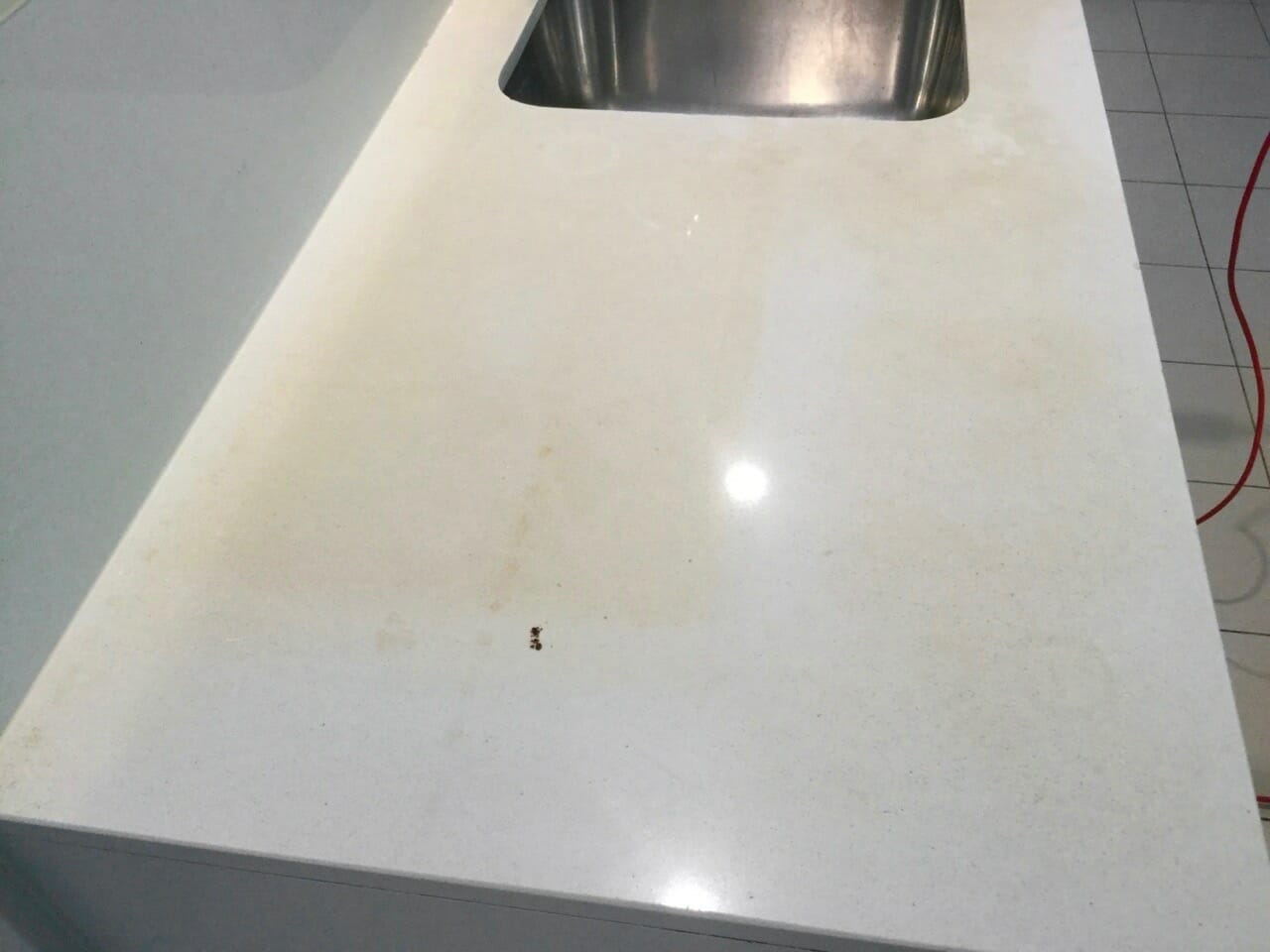
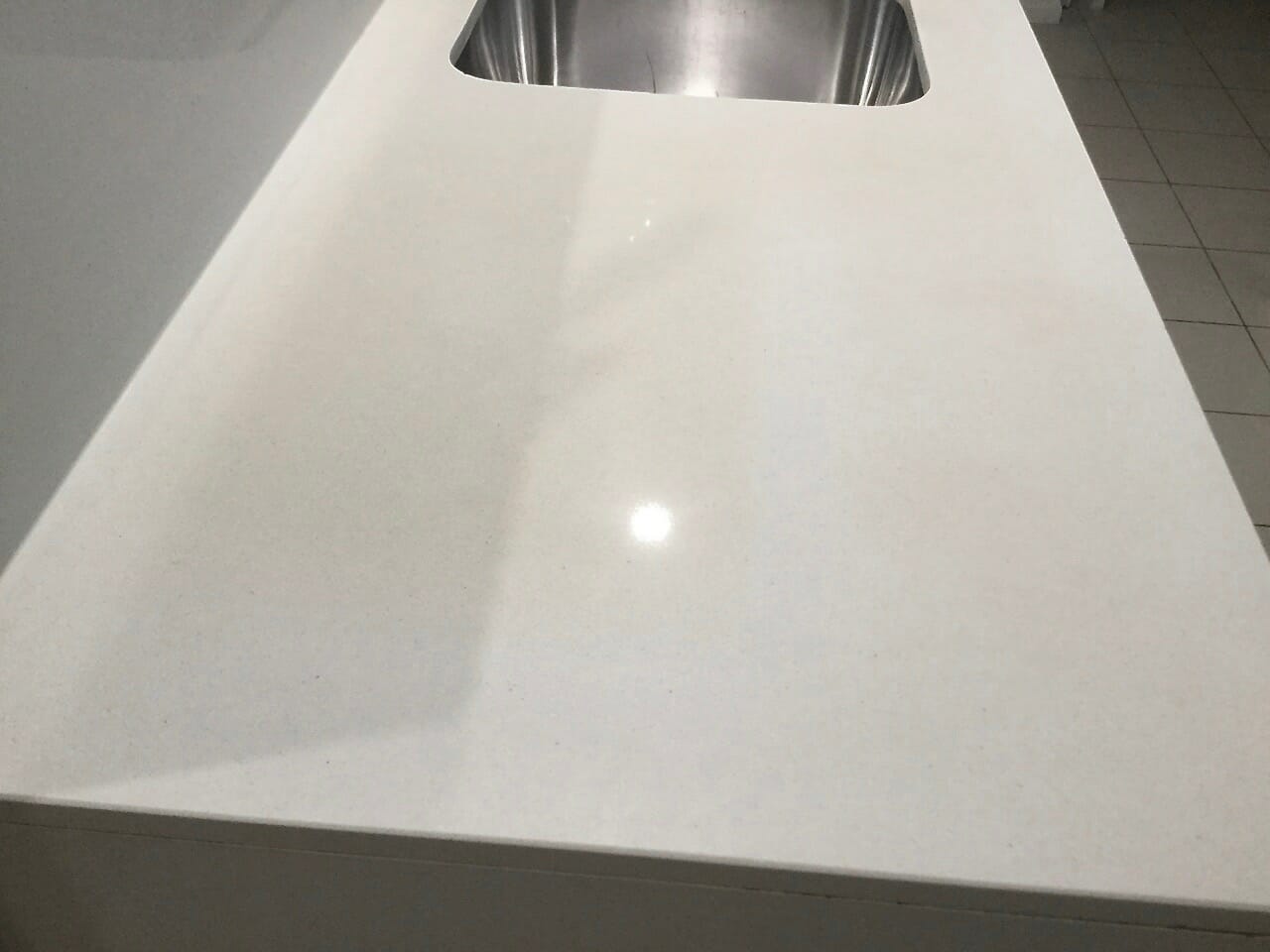
Can the yellow colour be removed from my Caesarstone benchtop?
Over time engineered stone benchtops can discolour. This often depends on the quality of the stone and the age. In most cases the stone would normally need to be replaced.
Even the most effective stone cleaners cannot remove this type of discolouration, which usually occurs over the whole surface of the stone. No steps can be taken to avoid the yellowing. It will either happen to the stone or not but it can’t be predicted when you purchase the stone.
The Marble Man has over many years of trial and error, developed a process for successfully lightening this yellowing. Whilst the stone will never fully be restored to its original colour our lightening process will dramatically improve the look of the stone.
If your engineered stone has started to discolour and you would like it treated before it gets worse, call The Marble Man or email your photos via our contact form.stone care handy hints
EMAIL OR CALL US NOW! 1300 627 626
MASTER BUILDERS QLD MEMBER

HIA QLD MEMBER

TUFFSKIN APPROVED APPLICATOR

AQUAMIX APPROVED APPLICATOR

DRYTREAT APPROVED APPLICATOR


